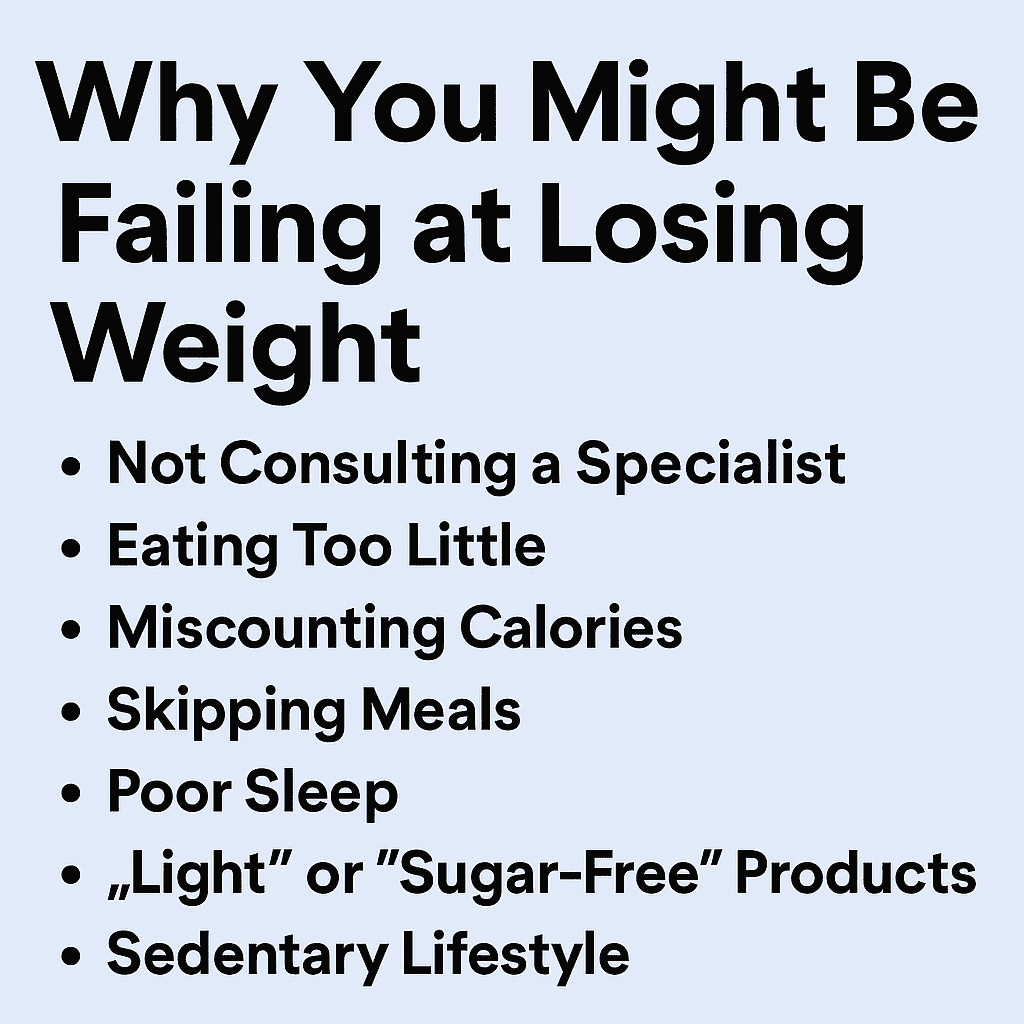Why You’re Not Losing Weight: 11 Hidden Mistakes to Fix Today
When I first decided to lose weight seriously, I made a huge mistake — I didn’t consult a doctor, let alone an endocrinologist. I thought I could do it all on my own with some calorie counting, a few workouts, and by skipping meals here and there. I was wrong. And if you’ve been struggling to lose weight despite your efforts, you might be making the same mistakes I did.
Over time, I realized that weight loss is not just about eating less or exercising more. It’s about understanding how your body works, which is why medical guidance — especially from an endocrinologist — can make all the difference.
Here’s What I Learned After Failing Multiple Diets
1. Not Consulting a Specialist Is a Major Pitfall
I wish someone had told me this earlier: seeing a specialist can be a game-changer. An endocrinologist doesn’t just give you a diet plan; they assess your metabolism, hormonal balance, possible underlying health issues like insulin resistance, thyroid disorders, or PCOS — all of which can sabotage weight loss if ignored.

A personalized diet combined with a tailored workout plan and regular check-ins helped me finally make progress — sustainably.
2. Eating Too Little Backfires
At one point, I reduced my calories drastically, thinking it would speed things up. What actually happened? My metabolism slowed down. My body went into “survival mode,” storing fat instead of burning it. The result? Frustration and eventual weight gain.
Lesson: Eat enough to fuel your body. Starvation is not a solution.
3. You Might Be Miscounting Calories
I used to think I was under my daily limit, but I wasn’t accounting for hidden calories — in sauces, drinks, or snacks. Plus, even if you eat fewer calories, you still need to burn more than you consume. Without physical activity, weight loss stalls. That’s basic science.
4. Skipping Meals Is Not Smart
I used to eat only twice a day. Big mistake. Now I eat five smaller, balanced meals. This keeps my blood sugar stable, reduces cravings, and gives me sustained energy. Experts support this method because it prevents overeating at any single meal and promotes better digestion.
5. No Food Is Forbidden
One major mindset shift I had was learning that no food needs to be eliminated completely. Yes, even carbs and fats. The key is moderation and balance. I still eat chocolate sometimes — just not the whole bar.
6. Poor Sleep Ruins Progress
When I started tracking my sleep, I saw a huge difference. Lack of sleep made me hungrier, crankier, and more likely to snack on junk. Now I prioritize at least 7–8 hours of good-quality sleep every night. It’s underrated but incredibly important for weight loss and hormone regulation.
7. Drinks Count Too
This was another blind spot for me. I was drinking zero-calorie sodas and flavored waters thinking they were harmless. Turns out, many of these drinks contain artificial sweeteners that can increase appetite and cause bloating.
Now, I mostly stick to plain water and unsweetened herbal teas. When I drink anything else, I account for the calories.
8. Don’t Be Fooled by “Light” or “Sugar-Free” Labels
I fell for the trap of “light” snacks and sugar-free sodas, believing they’d help me lose weight. Studies now show that artificial sweeteners may actually stimulate appetite and make you crave more food. That was definitely true for me.
9. You Might Have an Underlying Condition
In my case, I discovered I had mild insulin resistance after seeing an endocrinologist. That helped explain why I wasn’t losing weight despite all my efforts. If you’re doing everything “right” and still not seeing results, get your bloodwork done. You might have a condition that needs treatment.
10. Aging Affects Fat Loss
As I hit my 30s, I noticed weight loss wasn’t as easy. That’s natural — we lose muscle and gain fat as we age. But regular strength training and consistent movement helped slow that down.
11. Sitting Too Much Cancels Out Diet Efforts
Even if you eat perfectly, a sedentary lifestyle can wreck your progress. I started walking more, taking breaks during work hours, and adding strength training twice a week. The results were visible within weeks.
Final Thoughts: Long-Term Success Needs Re-Education, Not Just a Diet
The most important lesson I’ve learned? Weight loss is not just about short-term results. If you don’t change your lifestyle — your mindset, eating habits, movement, and sleep — the yo-yo effect is almost guaranteed.
I’ve been through it, and I’ve finally made peace with the process. It’s not a sprint. It’s a lifelong journey.




